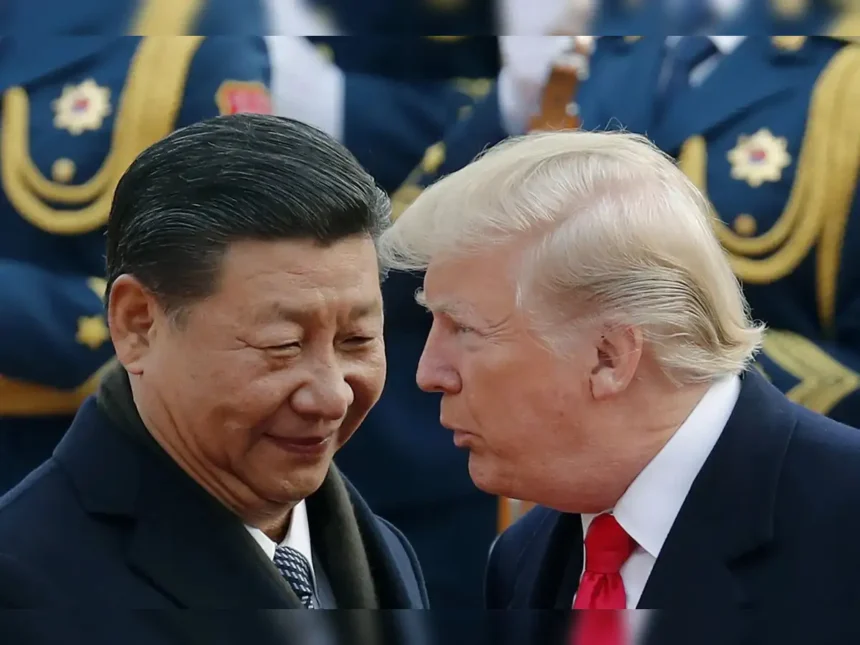Global Markets React to Trump-Xi Call and Trump-Musk Dispute
Global markets experienced a rollercoaster of instability on Friday, as initial optimism following “very positive” discussions between US President Donald Trump and Chinese President Xi Jinping quickly turned into chaos due to a public dispute between Trump and billionaire Elon Musk.
The much-anticipated phone call between the leaders of the world’s two largest economies initially raised hopes for a resolution to trade tensions, especially after Trump’s recent tariff increases significantly impacted Beijing. However, investor confidence took a hit as an unprecedented social media clash between Trump and his former aide, Musk, erupted into insults and threats.
This clash sent Wall Street into a downward spiral, with all three major US indexes closing in the red and Musk’s Tesla stock plunging over 14% as Trump threatened the company’s government contracts.
Asian equities displayed a mixed performance in early trading, with analysts speculating that traders were adjusting their positions in anticipation of a potentially turbulent start to the following week, influenced by both the Trump-Musk feud and the upcoming US jobs data.
While Hong Kong, Sydney, Wellington, Taipei, and Bangkok witnessed declines, Mumbai saw gains after the Reserve Bank of India implemented a larger-than-expected interest rate cut. Tokyo, Singapore, and Shanghai recorded marginal increases. In Europe, London rose while Paris and Frankfurt fell, though US futures appeared stronger.
Chris Weston of Pepperstone highlighted that while the Trump-Xi call was a step in the right direction, it failed to provide any tangible outcomes for traders, swiftly redirecting attention to the Trump-Musk clash. He emphasized the significance of the upcoming US nonfarm payrolls report, scheduled for later on Friday, as a major risk factor for Asia-based traders.
Weston also cautioned about the potential for Trump to generate market-moving headlines over the weekend, considering his heightened state, which could impact the market’s opening on Monday.
The US jobs figures are eagerly anticipated, especially following a disappointing private hiring report earlier in the week that raised concerns about the labor market and the overall health of the US economy. These figures come amidst expectations of a potential resumption of interest rate cuts by the Federal Reserve from September, even as economists warn that Trump’s tariffs could reignite inflation.
Stephen Innes of SPI Asset Management warned of a “paradox” in the current market scenario: weak jobs figures could indicate economic fragility, while a strong reading might prompt traders to reconsider potential Fed rate cuts, turning “good news on Main Street into bad news on Wall Street.”








